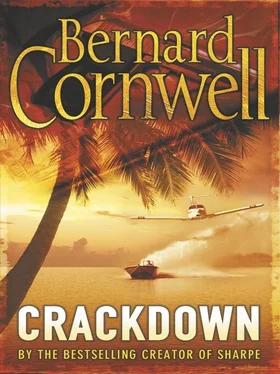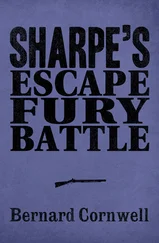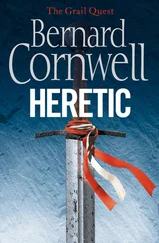Those flares were being sprayed haphazardly about the sky, just as the mortar bombs were now being scattered indiscriminately across the island’s open spaces. The mortar seemed to be emplaced in the garden of the house just beyond the raging fire. I could hear men shouting in that garden. Every now and then a machine-gun or rifle would open fire, but without purpose. The narcotraficantes had lost us. They were night-blinded by their own fire and by their flares, and they neither knew how many enemy faced them nor where that enemy was.
The northernmost house lay silent and dark. A hot tub on its terrace seemed to be filled with molten silver where the crescent moon glossed its water. Beyond the tub was a black wall of glass in which one sliding window had been left open. A white curtain stirred in the gap, but I could sense nothing threatening beyond the curtain, and so I stood up and edged round the hot tub’s gleaming water to the open glass door. No one challenged me. I paused by the billowing curtain, listening, but I heard nothing to scare me, and so I walked unopposed and undetected into my enemy’s house. There was a distinct smell of perfume, as though an exotic woman had just left the darkened room. I stood, eyes wide, till a flare cracked apart in the southern sky to cast an eerie white glow through the open window, and I saw that I was in a long elegant room furnished with cushioned wicker furniture. More glass doors opened on to the central courtyard where a swimming pool reflected the flare’s harsh fire. The walls of the elegant room were hung with fine antique prints; the home of a civilised murderer.
I stood utterly still. I was trying to sense danger in this perfumed house, using whatever primitive instincts were left to me, but then a door opened deep in the house, and I saw the flicker of a candle flame and I realised that someone was walking down a long corridor towards me.
One side of the corridor was formed by the glass wall that looked on to the central courtyard while the other was a lined with bookcases. Whoever walked between the books and the glass was shielding the candle flame with his hand so that his forward motion would not extinguish the small light.
It was Rickie, and he came unsuspecting towards me.
He was weaving slightly on the carpeted floor, and staring intently down at the candle. He had left the door at the far end of the corridor open and more candles burned in the room beyond, but I sensed Rickie was alone. He was humming to himself, concentrating on preserving the flickering fragile flame, then he saw the flash-suppressor of the machine-gun pointing at his midriff, and his eyes slowly came up to mine, and the candle dropped to extinguish itself on the floor.
“Hello, Rickie,” I said gently.
He was shaking. He could see me well enough, because I was illuminated by the candles in the room behind him, but I could only dimly see his face. What I glimpsed was not good. He looked ravaged and old before his time. His mouth opened and closed as though he was trying to speak, but he could not, then he began to back away from me with his hands held towards me. “You’re dead!” he said. “They told me you were dead!”
“Your father’s here, Rickie. He’s come to take you away.”
Rickie backed into the candlelit room and I saw just how pale and sick he looked. His one good eye was bloodshot and there were flecks of dried blood at his nostrils. A pulse was racing at his neck. He backed further from me, stopping at a table on which he sat as limply as a puppet loosed of its strings.
“You shouldn’t be here!” he whimpered, and he held his hands towards the walls as though feebly trying to protect the room’s contents, and the odd gesture made me realise just what was being stored in the big, high-ceilinged chamber.
It was the new riches of the Americas.
I was standing among the new gold that flowed to corrupt old nations; the new white gold of cocaine. I was in a room filled with cocaine; a room crammed with plastic-wrapped bales that must have been stuffed with the white crystalline powder. So much powder that I was crunching it beneath my boots because someone, I assumed Rickie, had slashed open one of the bales to pluck out a noseful of heaven.
There was money on the table behind Rickie, and a machine for counting banknotes, and there was also a knife. Rickie picked up the blade and held it towards me, but his threat lacked menace. It was merely a dutiful gesture, and it was no trouble to pluck the blade from his nerveless fingers. He shivered, perhaps thinking that I would attack him with the knife, but instead I went to the piled bales and slashed at their plastic wrappings. I sliced again and again, each cut of the blade spilling more wealth than had ever filled the hold of a galleon sailing from the Spanish Main. The cocaine glittered as it cascaded to the floor and covered the carpet in glinting drifts. I ripped open more of the bellying plastic sacks, burying my hand to its wrist in a flood of pure cocaine. Rickie, watching me, suddenly began to giggle, then to choke, then to laugh. “You’re Nick,” he said at last.
“That’s right.”
“They said they were going to kill you.” He spoke like a small child who had trouble remembering exactly how the syllables should be joined together.
“They tried,” I said, and I slashed into another bale and yet more cocaine hissed and seethed down to the floor. “Where’s Ellen?” I asked.
“Ellen’s pretty.” Rickie was staring with awe at the cocaine that silted the carpet.
“Where is she, Rickie?”
“I have to tell them you’re here, so they can kill you,” he said in a very matter-of-fact voice.
“Of course you do.” I stabbed at plastic, wrenched the blade and watched the powder fall. “But first tell me where Ellen is.”
“You’re a ghost! You’re dead!” Rickie sounded suddenly alarmed, and he began to make curious weaving motions with his hands as though he was trying to ward off my unquiet spirit. His nose had started to trickle blood, and he was crying. He seemed to have disappeared into a private misery of hopeless despair. “You’re dead! Dead!” he screamed at me, spitting sputum and flecks of blood that stained the snow-white powder drifts on the floor. “You’re fucking dead and I hate you!” He hated himself, and he hated me, and he spat at me with pure loathing before shrieking at me to go away.
I dropped the knife into the cocaine, then fired the Kalashnikov. I aimed above and to one side of Rickie’s head. The green fire of the bullets chewed into the wall and the gun’s shattering noise echoed cruelly in the room. Rickie howled and covered his ears, then cowered down to the floor that looked as if it was covered with a new clean fall of snow. His blood was very bright on that new snow.
When the gun stopped firing he looked up at me, wondering whether I was going to kill him or, worse, perhaps hoping that I would.
“Where’s Ellen?” I asked again.
“They’re all next door,” he said in a voice that was as close to madness as any I had ever heard from a human being not on the stage. His words made perfect sense; it was the timbre of his voice that was insane. It was a whining and choking sob from the pits of despair. “All the women are next door in Billingsley’s house. They were put there to keep them safe. I don’t like Billingsley. I really don’t like Billingsley, and he doesn’t like me. No one likes me.” Then he began to weep again, but I no longer cared. I was going next door.
I locked Rickie in the room with his fortune of cocaine, then I walked down the book-lined corridor, across the elegant and perfumed room with its antique prints, and so on to the moon-washed terrace. I climbed over the terrace’s balustrade and edged warily down a steep grassy bank to a strip of sandy ground that separated the northernmost house from Deacon Billingsley’s. The policeman’s house formed three sides of a courtyard that faced towards the sea. The interior of the court was a swimming pool.
Читать дальше












